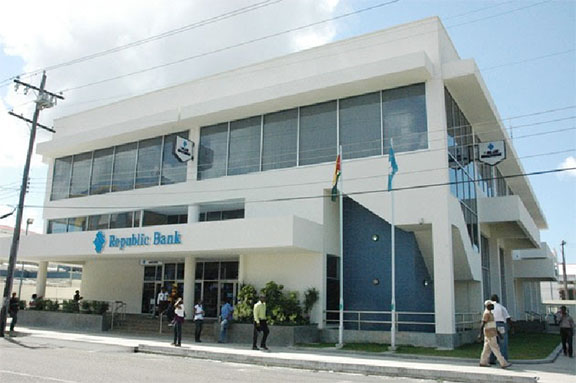Against the backdrop of frequent expressions of frustration by local small business owners and entrepreneurial aspirants regarding what they say is a less than welcoming posture by commercial banks towards making borrowing available for the creation of new enterprises and the consolidation of emerging and frequently struggling ones, a leading regional banking figure has told the Stabroek Business that relationships between commercial banks and their borrowers cannot be separated from the compulsory requirement of borrowers to meet the critical conditions that are vital to the protection of the interests of the banks’ depositors.
“Banks depend on paper. What are your plans? What are your financials? Banks’ decision-making is based on your ability to generate that kind of information in a concrete form. The biggest challenge we have always had with SME’s (small and medium enterprises) is that all of these ideas are in their heads but they don’t know how to put it in a format that the banks are comfortable with and can therefore use as a basis for making a comfortable decision, retired Chief Executive Officer of Republic Bank Ltd. David Dulal-Whiteway told Stabroek Business in an exclusive interview last Friday.
“That is why I ask the questions what role does education play,” said Dulal-Whiteway who on Friday delivered a paper to a Georgetown Chamber of Commerce and Industry (GCCI) Business Development Forum in his current capacity as Chief Executive Officer of the Trinidad and Tobago-based Arthur Lok Jack Global School of Business.
Dulal-Whiteway who is seeking to further consolidate the role of the Trinidad and Tobago business training institution in Guyana and who also met on Friday with University of Guyana Vice Chancellor Ivelaw Griffith, disclosed that the Arthur Lok Jack Global School of Business is offering specialized training that is both academic and hands-on in orientation and designed to help rising entrepreneurs stay abreast of the requirements of the contemporary business culture and to offer possible entrepreneurial options to degreed graduates who might otherwise become employees in various organizations.
Contrary to the oft-repeated view among small and medium-sized businesses regarding what they say is a mostly negative posture among local commercial banks to lending to small business operators, Dulal-Whiteway told the Stabroek Business that that position reflected a misunderstanding of considerations that influence lending policies. “Commercial banks are not substantively resistant to lending to SME’s. However, it is important that they position themselves to mitigate risk. Banks need timely and accurate information which can be used as a basis for making lending decisions. If I am lending to an organization that cannot even prepare a proper strategic plan what does that tell me about the management capabilities of that organization? If you can’t do those things then the risk increases. Banks lend depositors’ money. We cannot tell our depositors that we have lost their money to businesses to which we have extended loans,” Dulal-Whiteway told the Stabroek Business.
And according to the retired banking executive who still serves on the Board of Directors of Republic Bank (Guyana) Ltd. differences between emerging businesses and commercial banks over lending ‘policies’ are not unique to Guyana. “In Trinidad and Tobago it depends on the business model that you are articulating. You get the same complaints. If you are starting a brand new business, even if you have the best business plan issues can arise. Banks may ask themselves what happens if I lend the money and the business plan fails. That is where security comes in and that is where the challenges come in for small entrepreneurs who don’t have the security.”
Contextually, Dulal-Whiteway alluded to the creation in Trinidad and Tobago of the state-run Small Business Development Company to respond to the particular circumstances of SME’s and would-be investors. “What happened back then was that the Small Business Development Company said to the bankers you go out and lend these companies and we will guarantee a certain percentage of the loan. You don’t want to guarantee the entire loan in the event that banks make bad decisions understanding that the risk lies with the government rather than with themselves…with that level of security the interest rates on the loans will reduce because you have government standing by with its fifty per cent exposure guarantee.”
Dulal-Whiteway told Stabroek Business meanwhile that the changing global business demanded that small businesses receive both government and private sector help, including banking sector support to help them grow. “As countries we need to find ways to ensure that there are winners in these small companies because at the end of the day small companies are the ones that will grow and will create employment and by extension, reduce unemployment.”










